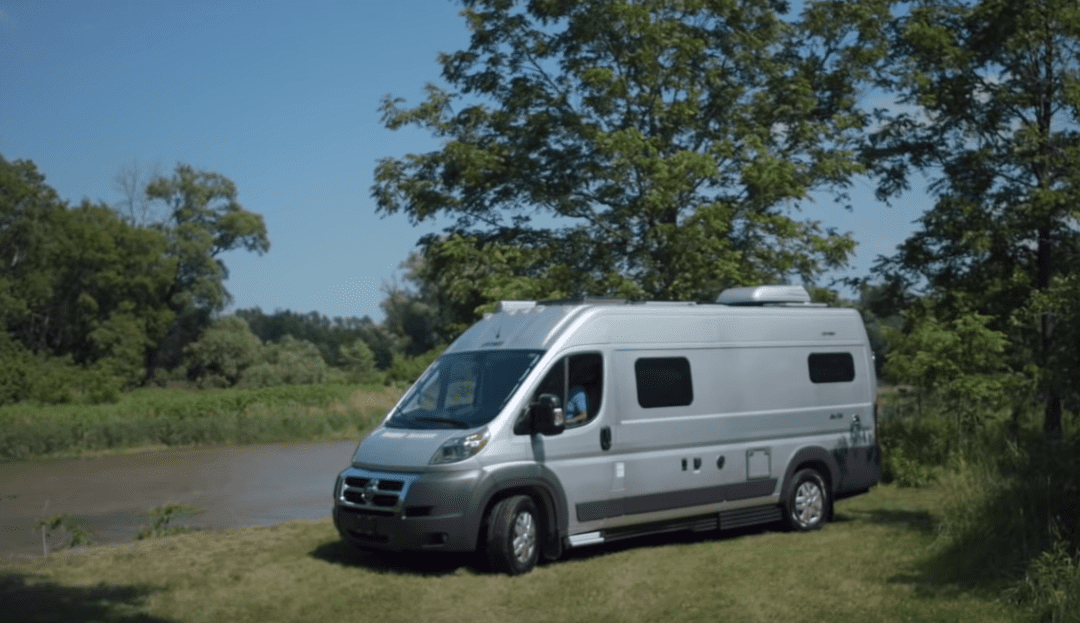Essentials, Preparation & Tips for Free Camping
Welcome to the world of RV boondocking! This comprehensive guide equips you for an unforgettable adventure, exploring the beauty of nature in solitude and minimizing your environmental impact. Boondocking, also known as dry camping, involves setting up your RV in remote locations without hookups for water, sewer, or electricity.
This guide empowers you to navigate the freedom and challenges of boondocking. We’ll cover essential preparation, navigating legal considerations, and overcoming common obstacles.
Let’s dive into the exciting world of RV boondocking!
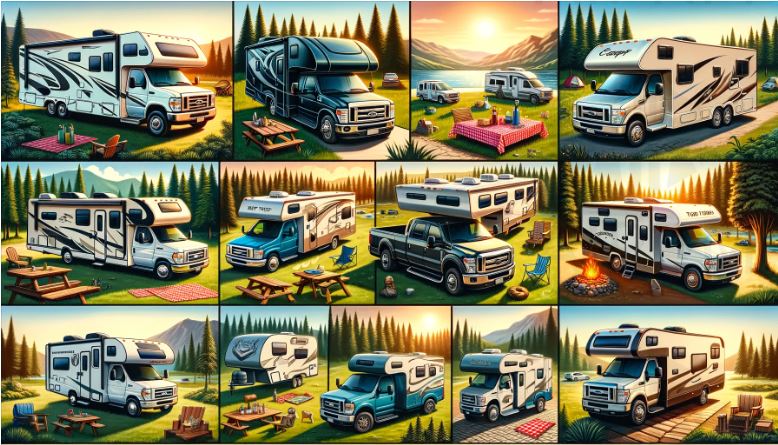
Choosing the Perfect RV for Boondocking
The ideal RV for boondocking hinges on your preferences and comfort level. While any self-contained RV can technically be used for dry camping, certain features enhance the experience. Here are some key considerations when choosing an RV for boondocking:
- Motorhomes: Self-contained for comfort, offering living areas, kitchens, bathrooms, and sleeping spaces. They range from maneuverable Class B vans to luxurious Class A behemoths.
- Travel Trailers: Affordable and versatile, travel trailers offer the advantage of a separate towing vehicle. This lets you run errands or explore the area without packing up your entire campsite.. They come in various sizes with kitchens, bathrooms, and sleeping areas, but living space might be limited.
- Fifth Wheels: Spacious and feature-rich, towed by pickup trucks. Think of them as large travel trailers with ample living areas.
- Truck Campers: Lightweight and perfect for smaller vehicles, fitting snugly onto a truck bed.
- Pop-up Campers: Affordable, compact, and easy to tow. They expand to create a comfortable living space, ideal for budget-conscious travelers.
- Teardrop Trailers: Ultra-lightweight, perfect for solo adventurers or couples. They typically offer a sleeping area and a small kitchenette for basic needs.
- Toy Haulers: Designed for adventure enthusiasts, featuring a built-in garage for transporting outdoor gear like motorcycles or bikes.
Consider your travel party size, budget, desired amenities, and travel frequency. Do you prioritize luxury (motorhome) or flexibility (towable)? Compact RVs, like Class B vans, Class C motorhomes, or travel trailers, excel at boondocking, particularly if you crave off-road adventures or remote locations. Lightweight options are also well-suited for venturing far from the beaten path. Each RV type offers unique advantages – find the one that complements your boondocking lifestyle
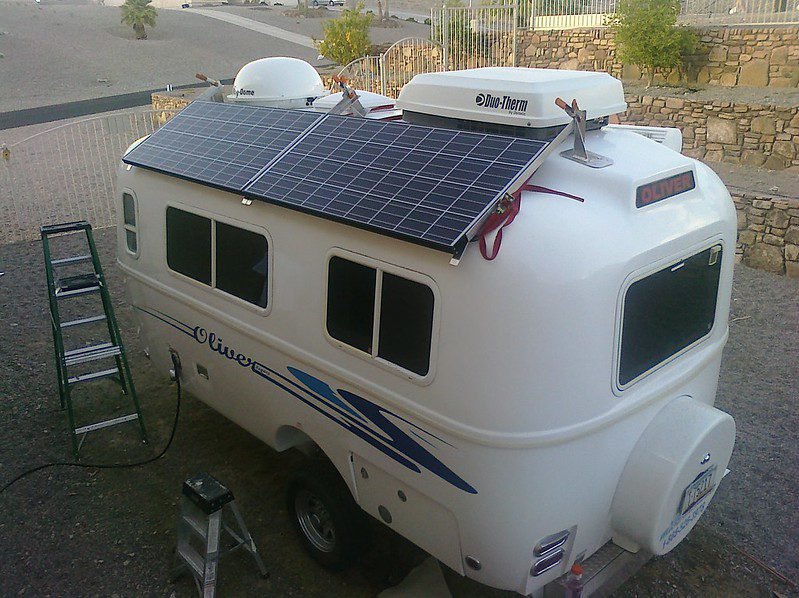
By Andrew Fresh via flickr
Power Sources for Boondocking
Without electrical hookups, you’ll need a plan to keep your RV juiced. Here are the main options:
-
Generators: Reliable and powerful, these burn fuel (gas, diesel, propane) to create electricity. They come in portable (noisy, budget-friendly) and built-in (quieter, efficient, pricier) versions. Choose a size that matches your RV’s needs and consider noise levels for remote camping.
-
Inverters: Convert DC battery power to AC power, allowing you to run appliances even without a generator. Select the inverter type (pure sine wave for all appliances, modified sine wave for some with caution, or hybrid for versatility) based on your needs. Choose the right capacity (wattage) to handle your appliances and consider professional installation for safety.
-
Solar Panels: A clean and renewable energy source that harnesses the sun’s power. They’re quiet, eco-friendly, and can save on fuel costs. Installation is relatively easy, though consulting a qualified electrician is recommended. Regular cleaning and maintenance are crucial for optimal performance.
The best option depends on your needs. For reliable power while boondocking, consider solar energy systems or generators. Solar systems are quiet, low-maintenance, and generate clean, renewable energy. However, their effectiveness can be reduced in overcast weather. Generators, on the other hand, provide ample power regardless of the weather, but they can be noisy and require fuel, which may not always be readily available. Consider your priorities (power needs, budget, noise concerns) to make the right choice for your boondocking adventures!
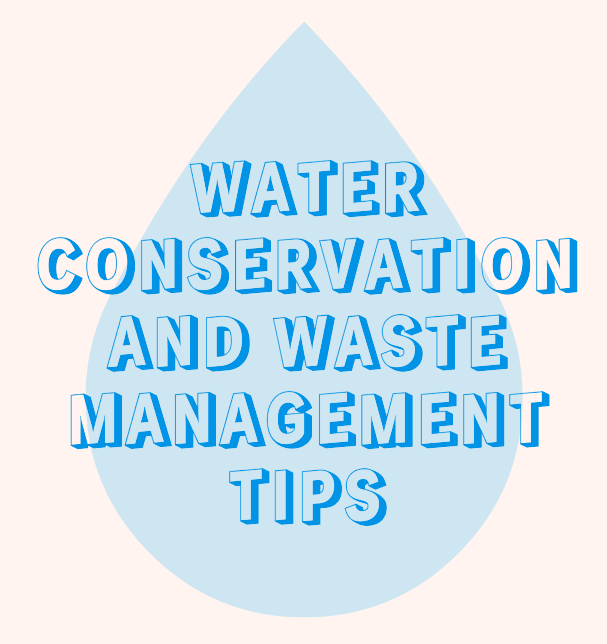
Water and Waste Management in Boondocking
Freshwater is a precious resource when boondocking. Here are some tips to stretch your supply:
- Shorter Showers: Every minute counts! Consider a showerhead with an on/off switch for easy lathering and rinsing. Capture the initial “warm-up” water for washing dishes or flushing the toilet.
- Gray Water Hacks: Collect slightly used shower water in a bucket for non-potable purposes like rinsing dishes or flushing the toilet (check RV toilet compatibility). Opt for biodegradable soap to minimize environmental impact.
- Waste Management: Traditional RV toilets can be water guzzlers. Consider a composting toilet, which uses bacteria to break down waste into usable compost (consult local regulations). If using a traditional toilet, locate dump stations beforehand (often at RV parks) to dispose of waste responsibly.
Leave No Trace: Responsible Waste Disposal
Boondocking is about enjoying nature, so respecting it is crucial. Here’s how to be a responsible waste manager:
- Never dump waste on the ground or in toilets. Locate designated dump stations for proper disposal.
- Composting toilets require designated areas away from water sources. Follow local regulations for responsible waste management.
By adopting these water-saving practices and responsible waste disposal methods, you can minimize your environmental impact and enjoy a clean and comfortable boondocking experience!
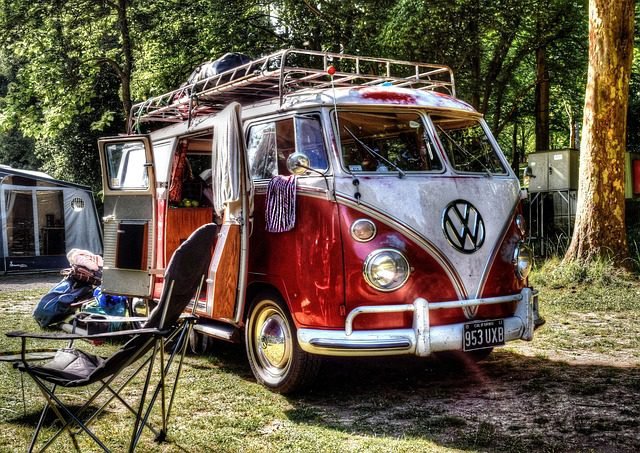 Image by TheoRivierenlaan from Pixabay
Image by TheoRivierenlaan from Pixabay
Benefits of Boondocking
Beyond the freedom of remote locations and reduced reliance on hookups, boondocking offers a multitude of advantages:
- Cost Savings: Public lands and dispersed camping areas often come with minimal or no fees, significantly reducing your camping expenses.
- Tranquility and Nature Immersion: Escape the crowds and noise of traditional campgrounds. Embrace the serenity of remote locations and truly connect with nature.
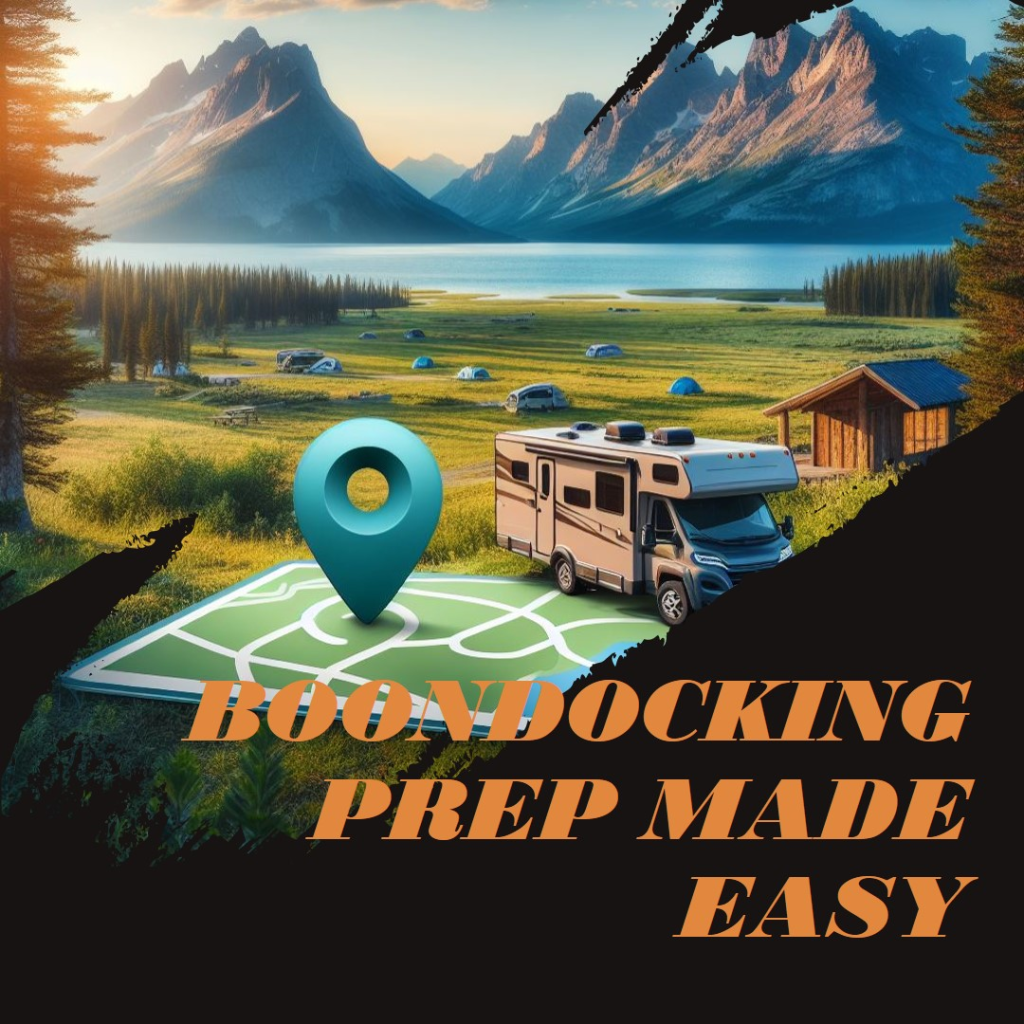
Preparation Before Boondocking
- Location Scouting: Find legal boondocking spots using online resources and apps. Research regulations regarding parking, duration, and environmental restrictions.
- RV Readiness: Ensure your RV is equipped for off-grid living. Stock up on water and fuel, and consider solutions for generating electricity (see “Powering Up Your Boondocking Adventure” for details).
- Food and Water Planning: Pack sufficient non-perishable food and a water filter or purifier for natural water sources.
- Resource Conservation: Be mindful of water and electricity usage. Pack out all trash and waste (“Leave No Trace” principle).
- Emergency Preparedness: Pack a first-aid kit, toolbox, and extra supplies. Inform someone about your travel plans.
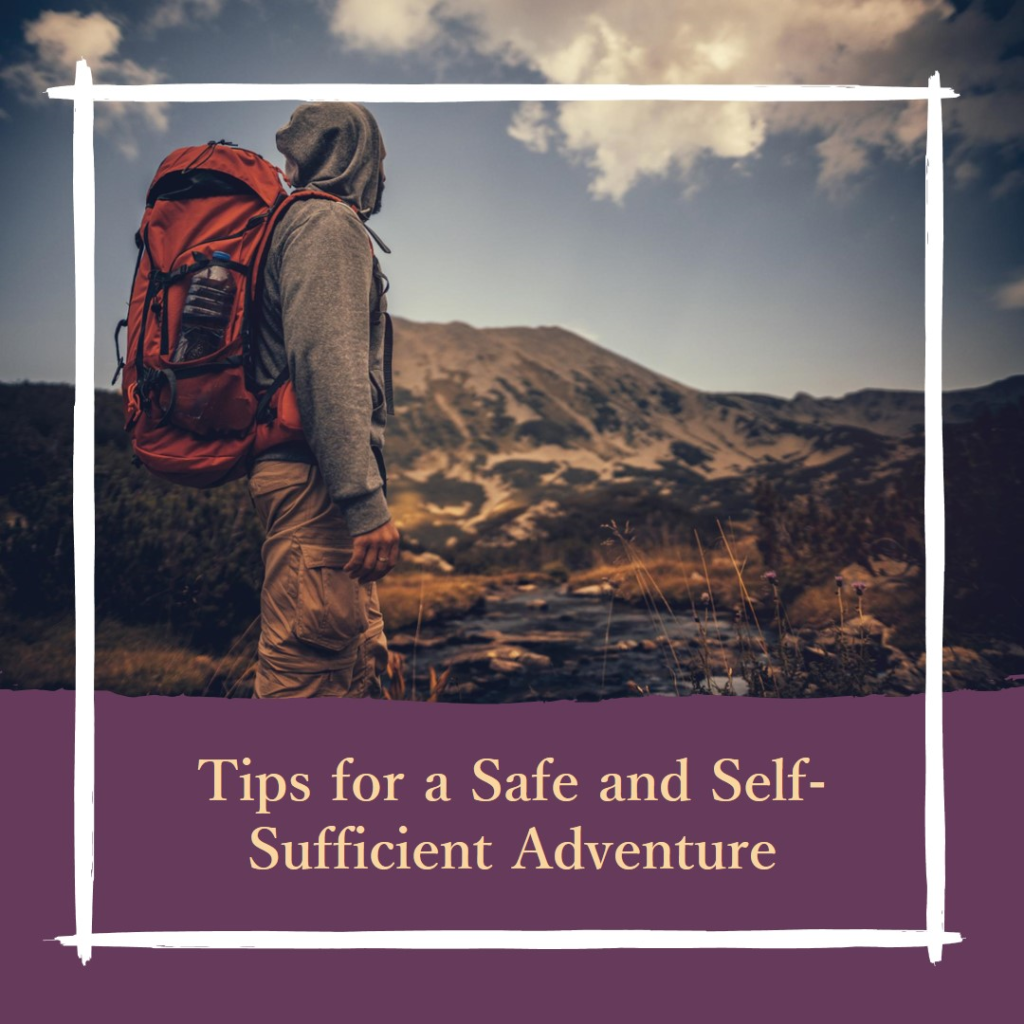
Essential Boondocking Tips
Beyond the core preparation steps, here are some valuable tips to elevate your beginner boondocking experience:
- Location Selection: Utilize websites like Freecampsites.net to find dispersed camping areas that allow RVs. Always research regulations regarding parking duration, environmental restrictions, and road accessibility for your RV size.
- Safety and Communication: Inform a trusted friend or family member about your travel plans, including your destination and estimated return date. Be aware of your surroundings and prioritize safety measures for yourself and your belongings.
- Self-Sufficiency: Pack enough water (plan on 10 gallons per person per day), food, and essential supplies for your trip duration. Consider a water purifier if using natural water sources.
- Resource Management: Develop a plan for limited electricity. This could involve using a generator, solar panels, or simply conserving power. Remember the “Leave No Trace” principle by packing out all trash.
- Planning and Preparation: Research your chosen location beforehand. Reading online reviews from fellow boondockers can provide valuable insights into what to expect.
- Arrival and Setup: Aim to arrive before nightfall to allow for a smooth setup before darkness. Trust your instincts – if something feels unsafe about a location, don’t hesitate to find another spot.
- Emergency Preparedness: Be prepared for unforeseen situations. Pack a first-aid kit, a toolbox, and extra supplies. Knowing your GPS coordinates will aid emergency services if needed. Program the closest urgent care or emergency room number into your phone for quick access. Park facing the designated exit for an easier escape if necessary.
By following these additional tips, you’ll be well-equipped to navigate the unique aspects of boondocking and embark on a rewarding adventure that celebrates self-sufficiency and connection with nature.
Rules of Boondocking
Respecting the environment and fellow boondockers is key to a sustainable and enjoyable off-grid adventure. Here are some essential rules to remember:
Permissions and Regulations:
- Private Property: Boondocking is only legal on public lands or private lands with explicit owner permission. Always seek permission before setting up camp on private property. Research beforehand to ensure you’re in a legal and safe location.
- Public Land Rules: Different public lands have varying regulations regarding maximum stay limits, fire restrictions, and permitted activities. BLM land often allows 14 days within a 28-day period, while National Forests might have similar limits with varying move distances. Fire restrictions are common, especially during dry seasons. Be aware and respectful to maintain access for future campers.
Respecting Your Surroundings:
- Campsite Spacing: One of the joys of boondocking is solitude. Maintain a reasonable distance from other campsites unless invited closer. This ensures everyone enjoys their wilderness experience without feeling crowded, especially during quiet hours.
- Noise Levels: Keep noise levels low, particularly during designated quiet hours (usually 10 PM to 6 AM). This includes minimizing noise from music, generators, and other activities. Let the tranquility of the wilderness prevail.
Leave No Trace:
- Pack Out All Trash: Uphold the “Leave No Trace” principle. Pack out all trash and litter, including food scraps that can attract wildlife. Consider picking up trash left by others to preserve the natural beauty for future visitors and wildlife.
Remember, boondocking is a privilege, not a right. By following these guidelines, we ensure these stunning natural spaces remain open and enjoyable for future generations of boondockers.|
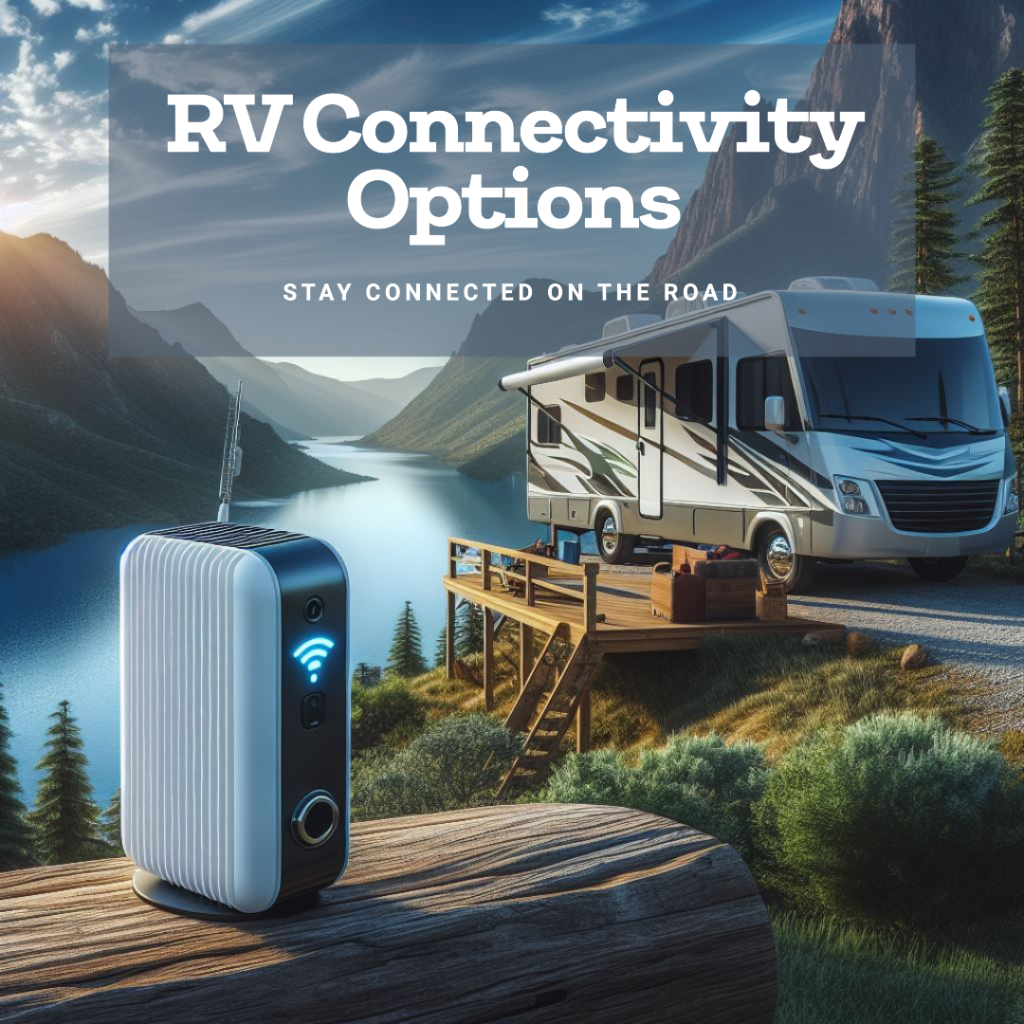
Staying Connected: Embracing Nature Without Disconnecting
While boondocking offers a chance to escape the hustle and bustle, staying connected can be important. Here’s a breakdown of your options for internet access in remote locations:
Cellular Data:
- Most common method, using your existing cell phone plan’s data allowance.
- Crucial: Verify coverage maps beforehand as signal strength can be weak in remote areas.
Cellular Boosters:
- Enhance signal strength in areas with weak or spotty coverage.
- Amplify the signal from cell phone towers for improved reliability.
Data Plans:
- Choose a plan based on your data needs. Streaming requires a plan with more data compared to just checking emails.
Satellite Internet:
- Reliable option for areas with no cell service, but comes at a higher cost.
- Slower speeds compared to cellular data, especially during peak usage times.
Wi-Fi Extenders:
- Extend the range of an existing Wi-Fi network, useful for reaching a distant signal like from a campground or cafe.
- Best Practices: Position the extender centrally for a strong connection from the main source and avoid placing it behind walls or obstructions.
Staying Connected Tips:
- Plan Ahead: Check coverage maps for cell phone providers and satellite internet options before your trip.
- Cellular Boosters: Consider using one if venturing into areas with weak signals.
- Data Plans: Select a plan that aligns with your data usage and budget.
- Satellite Internet: Be aware of limitations like slower speeds and higher costs.
- Wi-Fi Extenders: Utilize them strategically to extend existing Wi-Fi network range.
By following these tips, you can maintain a connection to the outside world while embracing the tranquility of your boondocking adventure. Remember, sometimes disconnecting to reconnect with nature can be an enriching experience as well.
Embrace the Freedom and Serenity of Boondocking
RV boondocking offers a unique opportunity to explore the wonders of nature on your own terms. It’s a chance to disconnect from the everyday hustle and bustle, reconnect with yourself and your surroundings, and experience the tranquility of remote locations.
While there are challenges to overcome, the sense of self-sufficiency, the breathtaking landscapes, and the opportunity to embrace a simpler way of life make boondocking a truly rewarding adventure. By following the tips and best practices outlined in this guide, you’ll be well-equipped to navigate the off-grid and embark on a memorable boondocking experience.
Remember, boondocking is a privilege. Leave no trace, respect the environment and fellow boondockers, and act as a responsible steward of these natural wonders.
So, pack your bags, fuel your sense of adventure, and get ready to experience the magic of boondocking! The open road and countless unforgettable experiences await.
Resources
For additional information and resources on boondocking, check out the following:
- RV forums, like iRV2 and Escapees, where you can connect with other RVers and boondockers.
- Mobile apps, such as Campendium, AllStays, and Boondockers Welcome, which can help you find and review boondocking sites.
- Boondocking-related blogs and YouTube channels, where you can find valuable tips and advice from experienced boondockers.
- The National Park Service website (https://www.nps.gov/index.htm) – The NPS is an authoritative source for information about camping and outdoor recreation, and their website has a wealth of information on camping in national parks, including boondocking.
- The RV Industry Association website (https://www.rvia.org/) – The RV Industry Association is a trade organization that represents the RV industry, and their website has information on all aspects of RVing, including boondocking.
- The Bureau of Land Management website (https://www.blm.gov/) – The Bureau of Land Management is a government agency that manages public lands, including many areas where boondocking is allowed. Their website has information on boondocking on public lands.

